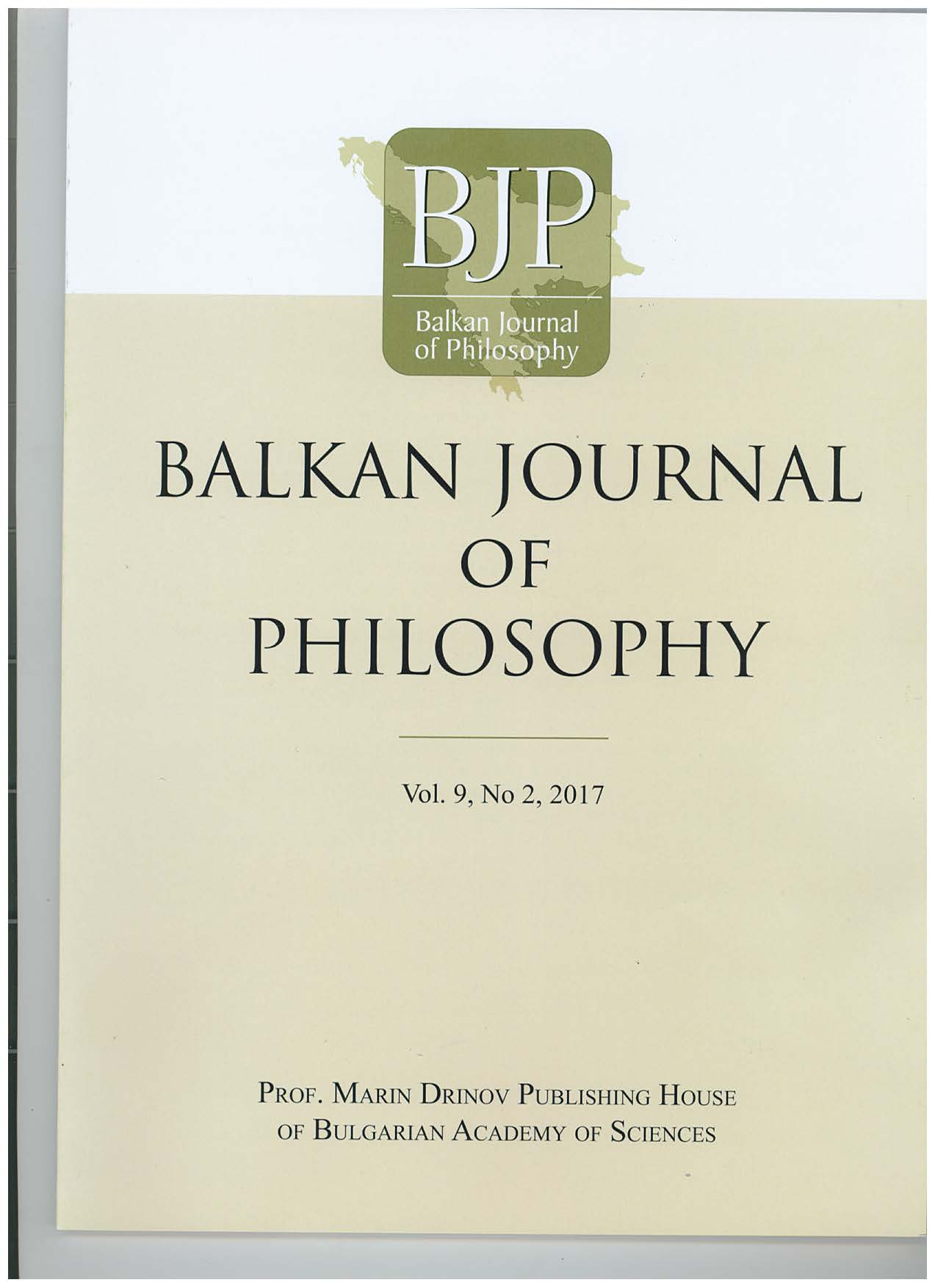Aristotle: Thought and Language
Aristotle: Thought and Language
Author(s): Marin AiftincãSubject(s): Philosophy, History of Philosophy, Epistemology, Special Branches of Philosophy, Ancient Philosphy, Philosophy of Mind, Philosophy of Language
Published by: Институт по философия и социология при БАН
Keywords: Thought; language; knowledge; existence; concepts; philosophy of language
Summary/Abstract: This paper aims to argue the idea that, by analyzing the relationship between thought and language, Aristotle decisively contributed to the foundation of the philosophy of language. Researching language in its relations with thinking and existence, the Stagirite demonstrated that the language is not just a communication tool, but a method of knowledge or of “deciphering” the world. The word reflects the reality thought and, in this situation, is not a slave of ideas or concepts. On the contrary, it even represents a decisive factor in their elaboration. Despite its authority, Aristotelian thinking about language, along with the whole tradition that it generated, met with a strong critical reaction among contemporary philosophers, especially among those of the analytic school. My conclusion is that even if some Aristotelian theses about language are criticized by modern thinkers, this falls under the normal evolution of science. It seems excessive to hold Aristotle responsible for not providing solutions to contemporary problems. As for the rest, the Stagirite continues to be present among us and teach us extremely difficult and enlightening lessons.
Journal: Balkan Journal of Philosophy
- Issue Year: IX/2017
- Issue No: 2
- Page Range: 119-126
- Page Count: 8
- Language: English

